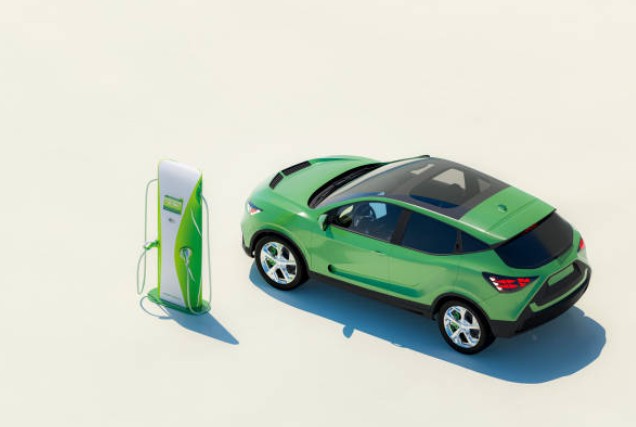The rapid rise of electric vehicles (EVs) is transforming the UK’s automotive landscape. With the government pushing for cleaner transport solutions to meet ambitious climate goals, more drivers and small business owners are considering electric cars as their next vehicle. However, many wonder: how much will electric car tax be in 2025?
Understanding the tax landscape is essential, especially when budgeting for a new purchase or managing a business fleet. This article dives deep into the details of the electric car tax in the UK for 2025, explaining what to expect, current government incentives, and what future changes might be on the horizon.
What Is Electric Car Tax? Understanding VED in the UK

Vehicle Excise Duty (VED), commonly called road tax, is an annual charge that all vehicle owners must pay to legally drive on UK roads. Unlike many countries, the UK calculates VED primarily based on a car’s CO2 emissions — higher polluting vehicles pay more.
Electric vehicles, producing zero tailpipe emissions, have been granted significant tax reliefs for years. This makes electric cars especially attractive, both for personal use and for businesses aiming to reduce environmental impact and operational costs.
VED is just one part of the tax picture; other considerations include first-year registration tax, Benefit-in-Kind (BiK) rates for company cars, and local charges like congestion fees.
Electric Car Tax Rates (In Effect Until May 2025)
As of 2024, fully electric vehicles (BEVs) are exempt from Vehicle Excise Duty (VED), meaning no annual road tax or first-year registration fees apply. Company car drivers also benefit from a low Benefit-in-Kind (BiK) rate of just 2%, making EVs highly attractive for business use.
Plug-in hybrids (PHEVs) are taxed based on CO2 emissions. Those emitting 1–50g/km pay £10–£25 in first-year VED, rising to £110 for higher emissions. After year one, most pay the standard £155, with an extra £355 yearly charge if the car costs over £40,000. BiK rates for PHEVs range from 5% to 14%.
Petrol and diesel cars face much higher taxes, with first-year VED up to £2,000+, standard VED at £155, and BiK rates between 25% and 37%, making them costlier to own and run compared to EVs.
How Much Will Electric Car Tax Be in 2025? What did the UK Government announce?

Zero Road Tax Continues
The UK government has reiterated that electric vehicles will continue to pay zero VED in 2025. This ongoing support is part of the government’s broader “Road to Zero” strategy, which aims to phase out petrol and diesel cars completely by 2030.
This means individuals and businesses will continue to save money by avoiding annual road tax charges on their electric vehicles, making EVs an economically sound choice in the coming year.
First-Year Rate Remains £0
In addition to zero annual VED, brand-new electric cars registered in 2025 will not attract any first-year tax charges, unlike some petrol or diesel cars, which face a premium in their first year based on emissions.
This zero first-year rate reduces the initial cost of ownership and provides another financial incentive to choose electric.
Potential Future Changes: What Could Affect Electric Car Tax After 2025?
While electric vehicles currently enjoy substantial tax relief, changes to taxation may come as the government adapts to a new transport landscape:
1. Mileage-Based Charging
Fuel duty, which is included in petrol and diesel prices, raises billions in revenue for road maintenance. As electric cars do not use fuel, the government may consider replacing this with a mileage-based charging system, where drivers pay a fee based on miles driven.
Though not yet confirmed, this system would ensure fair contribution from all drivers to road upkeep but could increase costs for electric car owners, especially those who travel frequently.
2. Urban Congestion and Low Emission Zones Expansion
UK cities like London, Birmingham, and Manchester are expanding Low Emission Zones to tackle air pollution. While electric cars currently avoid these fees, there is potential for charges on associated infrastructure usage or for hybrid vehicles that still emit pollutants.
Drivers should monitor changes in local policies, as expanding zones could introduce new costs even for zero-emission vehicles.
3. Road Toll Schemes
There is an ongoing debate about introducing tolls on motorways and major roads to generate revenue, which could affect all drivers, including electric vehicle owners.
If introduced, tolls would represent a new cost layer beyond traditional VED.
Plug-in Hybrids: What Will Their Tax Look Like in 2025?
Plug-in hybrids are seen as a transitional technology, combining electric motors with traditional engines. Because PHEVs emit CO2, their Vehicle Excise Duty rates are calculated based on emissions bands:
- Low-emission PHEVs (below 50g/km CO2) enjoy reduced VED rates, often significantly cheaper than petrol or diesel vehicles.
- Higher emission PHEVs face increased VED charges, reflecting their environmental impact.
- As emission standards tighten, these hybrids could become less financially attractive compared to fully electric cars.
For business owners and drivers considering PHEVs, understanding the exact CO2 emissions and corresponding VED band is vital for budgeting 2025 tax costs.
Electric Car Tax for Businesses in 2025: Company Cars and Fleets
Small businesses looking to electrify their fleets benefit from multiple tax incentives:
Benefit-in-Kind (BiK) Tax

Company car tax rates (BiK) are based on vehicle value and emissions. The government has kept electric car BiK rates low to encourage uptake:
- In 2025, electric company cars will continue to attract a BiK rate around 2%, drastically lower than petrol or diesel vehicles which can reach over 30%.
- This means employees driving electric company cars pay significantly less income tax, making EVs attractive perks.
- BiK rates for plug-in hybrids are higher but still lower than fossil fuel vehicles.
Capital Allowances
Enhanced Capital Allowances allow businesses to deduct the full cost of new electric vehicles against taxable profits in the year of purchase. This tax relief improves cash flow and reduces corporation tax liabilities.
This scheme is especially beneficial for small businesses upgrading multiple vehicles or investing in electric vans.
Running Cost Savings
Beyond tax, electric cars offer lower maintenance and fuel costs, further enhancing business profitability. Reduced servicing needs, fewer moving parts, and cheaper electricity compared to petrol or diesel fuel make EVs a smart long-term investment.
Other Considerations for Electric Car Owners in 2025
Insurance Costs
Electric vehicles often have higher insurance premiums due to expensive parts and repair costs. While not a tax, these premiums contribute to the overall cost of ownership and should be factored into your budget.
Shop around to find insurance providers specialising in EV policies to get the best rates.
Charging Infrastructure and Costs
Access to affordable and reliable charging is crucial. While home charging remains the cheapest, public chargers vary widely in price, and some local authorities may introduce parking or charging fees.
Government grants may still be available for installing home chargers in 2025, reducing initial investment costs.
Grants and Incentives
The UK government has offered grants for electric car purchases and home charger installations. Although these grants are subject to change, they often represent a significant saving, sometimes several thousand pounds, making EVs more affordable.
Keep up-to-date with available schemes in 2025 to maximise savings.
Summary: How Much Will Electric Car Tax Be in 2025?
| Vehicle Type | VED (Road Tax) in 2025 | Other Tax Notes |
|---|---|---|
| Fully Electric Cars | £0 (zero rate continues) | Low Benefit-in-Kind rates for company cars |
| Plug-in Hybrids (PHEV) | Based on CO2 emissions | Lower VED than petrol/diesel but not zero |
| Petrol/Diesel Cars | Variable, based on emissions | Higher VED and BiK rates |
Final Thoughts: Is Now the Time to Go Electric?
For UK drivers and small businesses, 2025 offers continued tax advantages for electric cars. Zero road tax, low company car tax, and ongoing incentives make EVs financially compelling.
However, potential future changes such as mileage charges or expanded urban fees could affect long-term costs. Staying informed about government policies will help you make the best decision.
Going electric now means benefiting from current tax savings while contributing to a cleaner, greener future—a win-win for your wallet and the planet.






